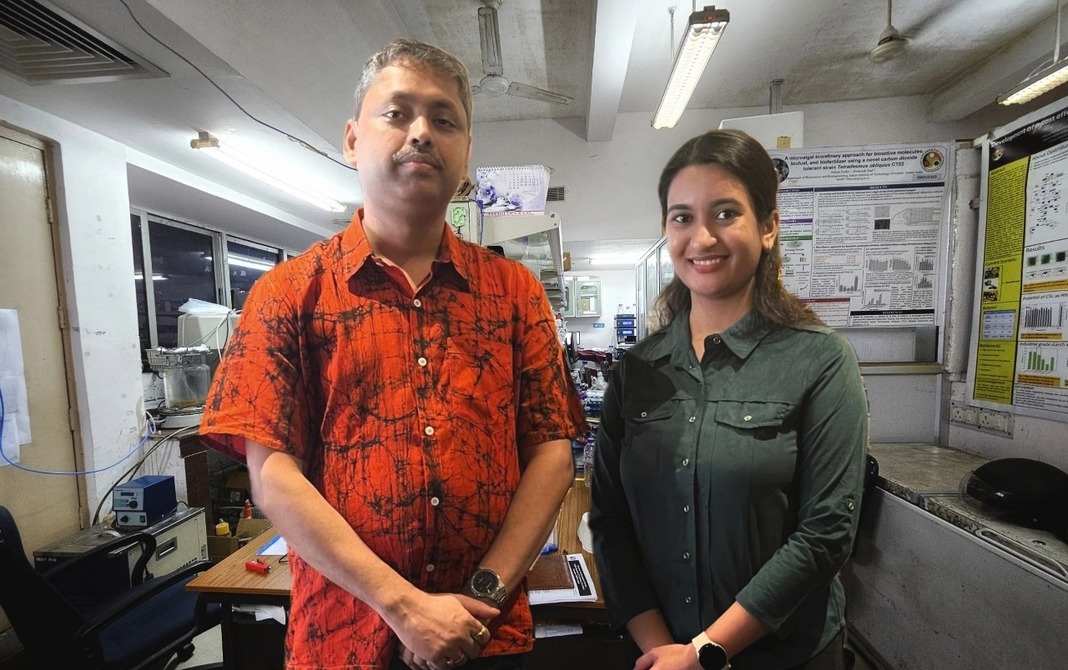Guwahati, Dec 9: Researchers at the Indian Institute of Technology (IIT) Guwahati have developed an advanced biological method to convert methane and carbon dioxide — two potent greenhouse gases — into cleaner biofuels using methanotrophic bacteria.
This groundbreaking innovation marks a major step forward in the global quest for sustainable energy solutions and climate change mitigation.
The research, spearheaded by Prof. Debasish Das and Dr. Krishna Kalyani Sahoo from the Department of Biosciences and Bioengineering, has been published in Fuel, a leading journal by Elsevier. The study addresses two pressing global challenges: the harmful environmental impact of greenhouse gases and the depletion of fossil fuel reserves.
Why It Matters:
Methane, a greenhouse gas 27-30 times more potent than carbon dioxide, significantly contributes to global warming. While existing methods to convert methane and carbon dioxide into liquid fuels have shown promise, they often require high energy inputs, expensive catalysts, and produce toxic by-products — all of which limit scalability.
IIT Guwahati’s method disrupts this paradigm by introducing a fully biological process that operates under mild conditions. At the heart of this process is Methylosinus trichosporium, a type of methanotrophic bacteria that efficiently converts methane and carbon dioxide into bio-methanol.
How It Works:
The process involves two distinct stages:
Biomass Production: Methane is captured and used to generate bacterial biomass.
Methanol Production: The biomass is then used to convert carbon dioxide into bio-methanol.
Unlike traditional chemical conversion methods, this approach does not require expensive catalysts, avoids toxic by-products, and is significantly more energy-efficient. The research team further enhanced the process using advanced engineering techniques to improve gas solubility, which significantly increased methanol yields.

The bio-methanol produced was tested as a blend with diesel (5-20% ratios) in a four-stroke diesel engine. The results were promising:
Emission Reductions : Carbon monoxide, hydrocarbons, hydrogen sulphide, and smoke emissions dropped by up to 87%.
Improved Efficiency: The diesel-methanol blends demonstrated better fuel consumption, energy efficiency, and engine performance compared to pure diesel, all while maintaining similar mechanical efficiency.
Highlighting the broader impact of the research, Prof. Debasish Das remarked:
“This research is a breakthrough as it demonstrates that bio-methanol, derived from bacteria feeding on methane and carbon dioxide, can be a viable alternative to fossil fuels. Unlike conventional biofuels that rely on crops and create competition with food production, our method uses greenhouse gases, avoiding the ‘food vs. fuel’ issue. It is an environmentally and economically viable solution, utilising inexpensive resources while contributing to emissions reduction.”
Read: Tura Youth League kicks off; Rongkhon Sporting, Selsella SA start on winning note
WATCH:
Find latest news from every corner of Northeast India at hubnetwork.in, your online source for breaking news, video coverage.
Also, Follow us on-
Twitter-twitter.com/nemediahub
Youtube channel- www.youtube.com/@NortheastMediaHub2020
Instagram- www.instagram.com/ne_media_hub
Download our app from playstore – Northeast Media Hub





